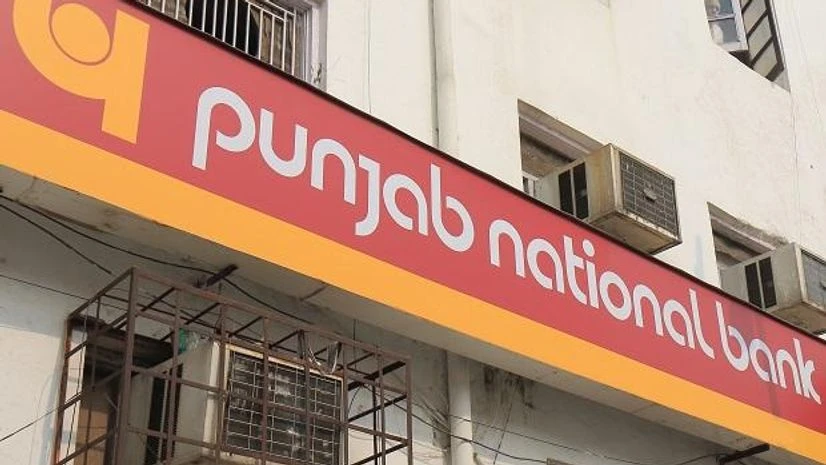State-owned Punjab National Bank (PNB) on Tuesday said it expects a recovery of Rs 14,000 crore from bad loans during the three quarters and earn a profit of Rs 4,000-6,000 crore in 2021-22 aided by rationalisation of expenses along with robust recovery.
Controlling the expenditure has got multiple dimensions, one of them is rationalisation of branches, PNB managing director S S Mallikarjuna Rao told reporters.
"We have succeeded in rationalising more than 500 branches. We are expecting to rationalise 1,000 branches by March 2022, which will give huge amount of reduction in the operational expenditure," he said.
Currently, the bank has about 10,641 branches across the country.
On the recovery side, he said, the bank expects Rs 5,000-5,200 crore from NCLT cases by March 2022. This will help reduce bad debt or non-performing assets by about Rs 12,000 crore.
"In normal recovery we generally get around Rs 3,000 crore per quarter. So, another Rs 9,000-10,000 crore we are expecting in normal recovery," he said.
More From This Section
Rao exuded the confidence that the bank should earn annual profit between Rs 4,000 crore and Rs 6,000 crore aided by strong recovery and cost rationalisation during the current financial year.
"Guidance for 2021-22 would be Rs 4,000-6,000 crore...at the balancesheet level the cost of deposits have been reduced drastically, cost to income ratio has been reduced, yield on advances has come down," he said.
Besides, recoveries from NPAs where provision coverage ratio is 80 per cent, these will be write back, he said.
"So 50 per cent of profit will be contributed by the write back during the year. So profit would come from mix of cost rationalisation and write back," he said.
With regard to further capital raising, he said, if you look at the capital adequacy ratio, it is 15.19 which is adequate to take care of 8-10 per cent credit growth.
"However, PNB, being a big bank, in order to insulate itself from the capital requirement for future and not to depend on the government, we will definitely look at discuss about it one month or so and take a call on that," he said.
This exercise would be with a view to generating buffers not for meeting business requirement, he said. Currently, the government holds 73.1 per cent in the bank.
On the perceived threat on the telecom sector due to the AGR order of the Supreme Court, he said all the telecom players are requesting the government to look at it. "So the developments in the last few days are areas of concern for the banking industry," he said.
PNB's exposure is not very high that is going to impact the balance sheet, he said, adding "however, we will be definitely discussing with other bankers to see what kind of action we need to take going forward considering the statement of K M Birla only yesterday."
The Supreme Court last month said it would pass orders on applications filed by telecom majorsVodafone Idea, Bharti Airtel and Tata Tele Services Ltdraising the issue of alleged errors in calculation in the figure of adjusted gross revenue (AGR)-related dues.
The apex court in September last year had given 10 years time to telecom service providers struggling to pay Rs 93,520 crore of AGR-related dues to clear their outstanding amount to the government.
Rao also said PNB will divest its stake in Canara HSBC OBC Life Insurance Company in the next 12 months.
The city-headquartered state-owned bank had acquired a stake in the life insurer post amalgamation of the erstwhile Oriental Bank of Commerce (OBC) into itself last fiscal year. The erstwhile OBC held 23 per cent stake in the life insurer, which by virtue of amalgamation has come to PNB.
Canara Bank owns 51 per cent stake, while HSBC Insurance (Asia Pacific) Holdings Ltd as a foreign partner owns 26 per cent.
It is also a promoter of another insurer PNB Metlife Insurance, owning the highest stake of 30 per cent. The company was set up in 2001, in which other shareholders include US-based Metlife with 26 per cent, Elpro (21 per cent) and M Pallonji & Company (18 per cent).
As per extant insurance guidelines of Insurance Regulatory and Development Authority of India (Irdai), one promoter cannot hold more than 10 per cent stake in two insurance ventures.
(Only the headline and picture of this report may have been reworked by the Business Standard staff; the rest of the content is auto-generated from a syndicated feed.)

)
